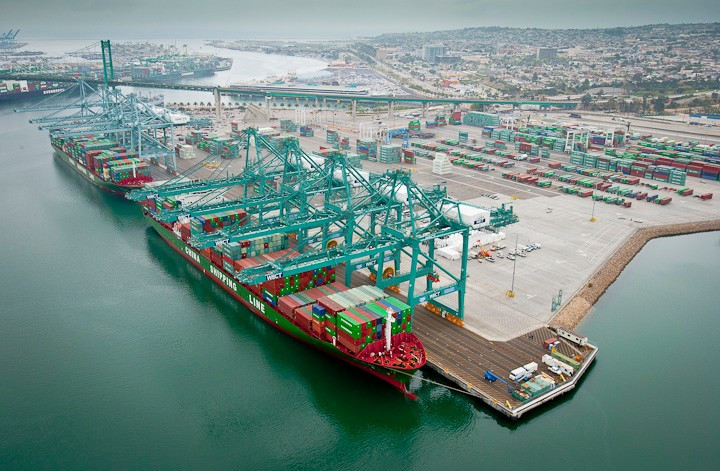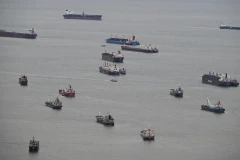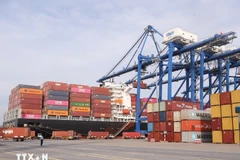Kuala Lumpur (VNA) – Malaysia’s maritime sector, particularly seaport transportation, faces mounting pressure from the US’s tariff policy.
Maritime analyst Nazery Khalid said that if the US continues to impose a high tariff after a 90-day postponement, importers with deep pockets will pay the extra tariffs in addition to additional levies, but small companies without sizeable cash or liquidity will not pick up the goods and will leave them stranded at ports.
The ripple effects could significantly strain Malaysia’s supply chain and port infrastructure.
Two major ports of Malaysia - Port Klang and the Port of Tanjung Pelepas - already ranked among the world’s top 20 busiest container ports, could suffer a downturn if cargo volumes fall sharply.
The tension, stemming from renewed tariff hikes is feared to trigger broader instability across maritime trade routes, further burdening an industry still recovering from the COVID-19 pandemic, volatile crude oil prices and global economic uncertainty.
Another repercussion from US President Donald Trump’s move is severe disruptions to the established order of the manufacturing supply chains which take a long time to build and nurture, Nazery added, noting that smaller manufacturers risk losing reliable overseas suppliers due to unsustainable cost increases.
According to Nazery, US companies will likely seek countries with lower tariff regimes instead of quickly relocating to the US.
Malaysia could attract foreign manufacturers with favourable incentives and infrastructure, he said.
According to a report by Malaysian port operator Westports Holdings Bhd, rising tariffs among major trading nations - a reversal of decades of globalisation — could trigger inflation, reduce consumer spending, and potentially tip global economies into recession.
It said lower containerised trade could emerge as a near-term impact. However, regional trade realignment and Asia’s economic dynamism could partially mitigate the downward pressure on container volume./.




























